.png) End poverty in all its forms everywhere
End poverty in all its forms everywhere
Public Policy
As one of the largest and fastest growing economic sectors in the world, tourism is well-positioned to foster economic growth and development at all levels and provide income through job creation. Sustainable tourism development, and its impact at community level, can be linked with national poverty reduction goals, those related to promoting entrepreneurship and small businesses, and empowering less favoured groups, particularly youth and women.
Companies and CSR Actions
On-going staff training; partnerships for education; diversity management; complementary benefits; in-kind donations for education, poverty and human rights; responsible investment and local recruitment; local purchases and fair trade.
 End hunger, achieve food security and nutrition, promote sustainable agriculture
End hunger, achieve food security and nutrition, promote sustainable agriculture
Public Policy
Tourism can spur sustainable agriculture by promoting the production and supplies to hotels, and sales of local products to tourists. Agro-tourism can generate additional income while enhancing the value of the tourism experience.
Companies and CSR Actions
Local and green purchase (food/agriculture); local supplies and fair trade; host community involvement; wildlife and ecosystem protection; offsetting actions.
 Ensure healthy lives and promote well-being for all at all ages
Ensure healthy lives and promote well-being for all at all ages
Public Policy
Tax income generated from tourism can be reinvested in health care and services, improving maternal health, reduce child mortality and preventing diseases. Visitors fees collected in protected areas can as well contribute to health services.
Companies and CSR Actions
Health prevention programmes; fight against sex touris, health and disasters awareness and donations; customer security and health - prevention and facilities.
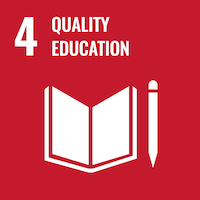 Ensure inclusive and equitable quality education and promote lifelong learning for all
Ensure inclusive and equitable quality education and promote lifelong learning for all
Public Policy
Tourism has the potential to promote inclusiveness. A skilful workforce is crucial for tourism to prosper. The tourism sector provides opportunities for direct and indirect jobs for youth, women, and those with special needs, who should benefit through educational means.
Companies and CSR Actions
Professional development and training; partnerships for education; diversity management; education for culture and heritage; in-kind donations for education; on-going staff training, information, facilities; host community involvement.
 Achieve gender equality and empower all women and girls
Achieve gender equality and empower all women and girls
Public Policy
Tourism can empower women, particularly through the provision of direct jobs and income-generation from SMEs in tourism and hospitality related enterprises. Tourism can be a tool for women to become fully engaged and lead in every aspect of society.
Companies and CSR Actions
Diversity management; awareness campaigns and in-kind donations towards fight against sex tourism and human rights; non-discrimination values in staff recruitment and training.
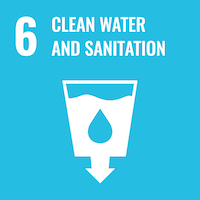 Ensure availability and sustainability management of water and sanitation for all
Ensure availability and sustainability management of water and sanitation for all
Public Policy
Tourism investment requirement for providing utilities can play a critical role in achieving water access and security, as well as hygiene and sanitation for all. The efficient use of water in tourism, pollution control and technology efficiency can be key to safeguarding our most precious resource.
Companies and CSR Actions
New equipment and technologies; prevention programmes for security and health; standards and certifications; community involvement.
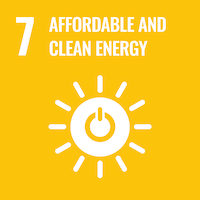 Ensure access to affordable, reliable, sustainable and modern energy for all
Ensure access to affordable, reliable, sustainable and modern energy for all
Public Policy
As a sector, which is energy intensive, tourism can accelerate the shift towards increased renewable energy shares in the global energy mix. By promoting investments in clean energy sources, tourism can help to reduce greenhouse gases, mitigate climate change and contribute to access of energy for all.
Companies and CSR Actions
New equipment and technologies; prevention programmes for security and health; standards and certifications; community involvement.
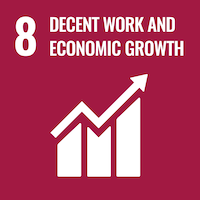 Promote sustained, inclusive and sustainable economic growth, employment and decent work for all
Promote sustained, inclusive and sustainable economic growth, employment and decent work for all
Public Policy
Tourism, as services trade, is one of the top four export earners globally, currently providing one in ten jobs worldwide. Decent work opportunities in tourism, particularly for youth and women, and policies that favour better diversification through tourism value chains can enhance tourism positive socio-economic impacts.
Companies and CSR Actions
Training for professional development; diversity management and local recruitment; performance incentives/complementary benefits; responsible investment and local purchases; community involvement.
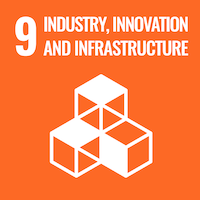 Build resilient infrastructure, promote inclusive and sustaijnable industrialization and foster innovation
Build resilient infrastructure, promote inclusive and sustaijnable industrialization and foster innovation
Public Policy
Tourism development relies on good public and private infrastructure. The sector can influence public policy for infrastructure upgrade and retrofit, making them more sustainable, innovative and resource-efficient and moving towards low carbon growth, thus attracting tourists and other sources of foreign investment.
Companies and CSR Actions
Eco-design; new equipment and technologies in energy and water resources; renewable energies; equipment and materials for recycling and waste; on-going staff training.
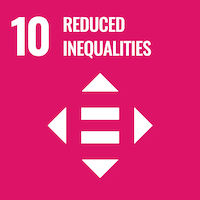 Reduce inequality within and among countries
Reduce inequality within and among countries
Public Policy
Tourism can be a powerful tool for reducing inequalities if it engages local populations and all key stakeholders in its development. Tourism can contribute to urban renewal and rural development by giving people the opportunity to prosper in their place of origin. Tourism serves as an effective mean for economic integration and diversification.
Companies and CSR Actions
Diversity management; local enterprise investment; responsible purchases; non-discrimination values in staff recruitment and training; community involvement.
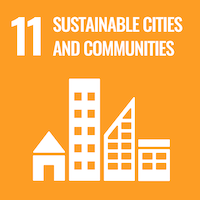 Make cities and human settlements inclusive, safe, resilient and sustainable
Make cities and human settlements inclusive, safe, resilient and sustainable
Public Policy
Tourism can advance urban infrastructure and accessibility, promote regeneration and preserve cultural and natural heritage, assets on which tourism depends. Investment in green infrastructure (more efficient transport, reduced air pollution) should result in smarter and greener cities for not only residents but also tourists.
Companies and CSR Actions
Certifications; partnerships; awareness campaigns, in-kind donations for culture and heritage sites; host community involvement; clean energy; resource efficiency; biodiversity conservation initiatives.
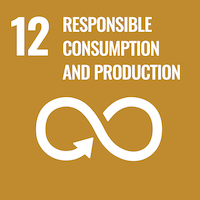 Ensure sustainable consumption and production patterns
Ensure sustainable consumption and production patterns
Public Policy
The tourism sector needs to adopt sustainable consumption and production (SCP) modes, accelerating the shift towards sustainability. Tools to monitor sustainable development impacts for tourism including for energy, water, waste, biodiversity and job creation will result in enhanced economic, social and environmental outcomes.
Companies and CSR Actions
Efficiency technologies for energy and water; renewable energies; recycling/waste treatment; pollution reduction; local purchase and enterprises; local supplier; community involvement; responsible investment; guest involvement.
 Take urgent action to combat climate change and its impacts
Take urgent action to combat climate change and its impacts
Public Policy
Tourism contributes to and is affected by climate change. Tourism stakeholders should play a leading role in the global response to climate change. By reducing its carbon footprint, in the transport and accommodation sector, tourism can benefit from low carbon growth and help tackle one of the most pressing challenges of our time.
Companies and CSR Actions
Eco-design; new equipment and technologies; renewable energies; recycling and waste; wildlife and ecosystems - landscape protection; pollution reduction; offsetting actions; awareness campaign and in-kind donations for disasters.
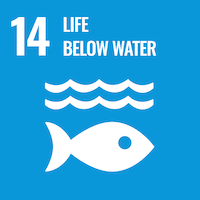 Conserve and sustainably use the oceans, seas and marine resources for sustainable development
Conserve and sustainably use the oceans, seas and marine resources for sustainable development
Public Policy
Coastal and maritime tourism rely on healthy marine ecosystems. Tourism development must be a part of Integrated Coastal Zone Management in order to help conserve and preserve fragile marine ecosystems and serve as a vehicle to promote a blue economy, contributing to the sustainable use of marine resources.
Companies and CSR Actions
Wildlife and ecosystems animal protection; pollution reduction; waste treatment; offsetting actions; green purchases; information for customers and staff; community involvement.
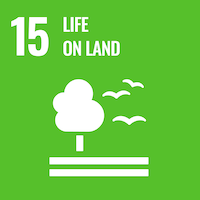 Protect, restore and promote sustainable use of terrestrial ecosystems and halt biodiversity loss
Protect, restore and promote sustainable use of terrestrial ecosystems and halt biodiversity loss
Public Policy
Rich biodiversity and natural heritage are often the main reasons why tourists visit a destination. Tourism can play a major role if sustainably managed in fragile zones, not only in conserving and preserving biodiversity, but also in generating revenue as an alternative livelihood to local communities.
Companies and CSR Actions
Wildlife and ecosystems animal protection; pollution reduction; waste treatment; offsetting actions; green purchases; information for customers and staff; community involvement.
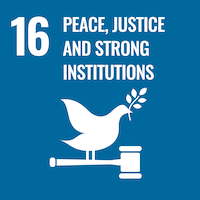 Promote peaceful and inclusive societies, provide access to justice for all and build inclusive institutions
Promote peaceful and inclusive societies, provide access to justice for all and build inclusive institutions
Public Policy
As tourism revolves around billions of encounters between people of diverse cultural backgrounds, the sector can foster multicultural and inter-faith tolerance and understanding, laying the foundation for more peaceful societies. Tourism, which benefits and engages local communities, can also consolidate peace in post-conflict societies.
Companies and CSR Actions
Human rights awareenss; in-kind donations; local enterprises - responsible investment; local recruitment and purchases; diversity and respect policy; anti-corruption money laundering; client relationships; host community involvement.
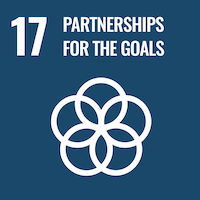 Strengthen the means of implementation and revitalise the global partnership for sustainable development
Strengthen the means of implementation and revitalise the global partnership for sustainable development
Public Policy
Due to its cross-sectoral nature, tourism has the ability to strengthen private/public partnerships and engage multiple stakeholders – international, national, regional and local – to work together to achieve the SDGs and other common goals. Public policy and innovative financing are at the core for achieving the 2030 Agenda.
Companies and CSR Actions
Professional development; partnerships for education; wildlife and ecosystems animal protection; offsetting actions; supplier and customer involvement; client relationships; staff involvement and relationships; community involvement.


.png)





.png) End poverty in all its forms everywhere
End poverty in all its forms everywhere End hunger, achieve food security and nutrition, promote sustainable agriculture
End hunger, achieve food security and nutrition, promote sustainable agriculture Ensure healthy lives and promote well-being for all at all ages
Ensure healthy lives and promote well-being for all at all ages Ensure inclusive and equitable quality education and promote lifelong learning for all
Ensure inclusive and equitable quality education and promote lifelong learning for all Achieve gender equality and empower all women and girls
Achieve gender equality and empower all women and girls Ensure availability and sustainability management of water and sanitation for all
Ensure availability and sustainability management of water and sanitation for all Ensure access to affordable, reliable, sustainable and modern energy for all
Ensure access to affordable, reliable, sustainable and modern energy for all Promote sustained, inclusive and sustainable economic growth, employment and decent work for all
Promote sustained, inclusive and sustainable economic growth, employment and decent work for all Build resilient infrastructure, promote inclusive and sustaijnable industrialization and foster innovation
Build resilient infrastructure, promote inclusive and sustaijnable industrialization and foster innovation Reduce inequality within and among countries
Reduce inequality within and among countries Make cities and human settlements inclusive, safe, resilient and sustainable
Make cities and human settlements inclusive, safe, resilient and sustainable Ensure sustainable consumption and production patterns
Ensure sustainable consumption and production patterns Take urgent action to combat climate change and its impacts
Take urgent action to combat climate change and its impacts Conserve and sustainably use the oceans, seas and marine resources for sustainable development
Conserve and sustainably use the oceans, seas and marine resources for sustainable development Protect, restore and promote sustainable use of terrestrial ecosystems and halt biodiversity loss
Protect, restore and promote sustainable use of terrestrial ecosystems and halt biodiversity loss Promote peaceful and inclusive societies, provide access to justice for all and build inclusive institutions
Promote peaceful and inclusive societies, provide access to justice for all and build inclusive institutions Strengthen the means of implementation and revitalise the global partnership for sustainable development
Strengthen the means of implementation and revitalise the global partnership for sustainable development
